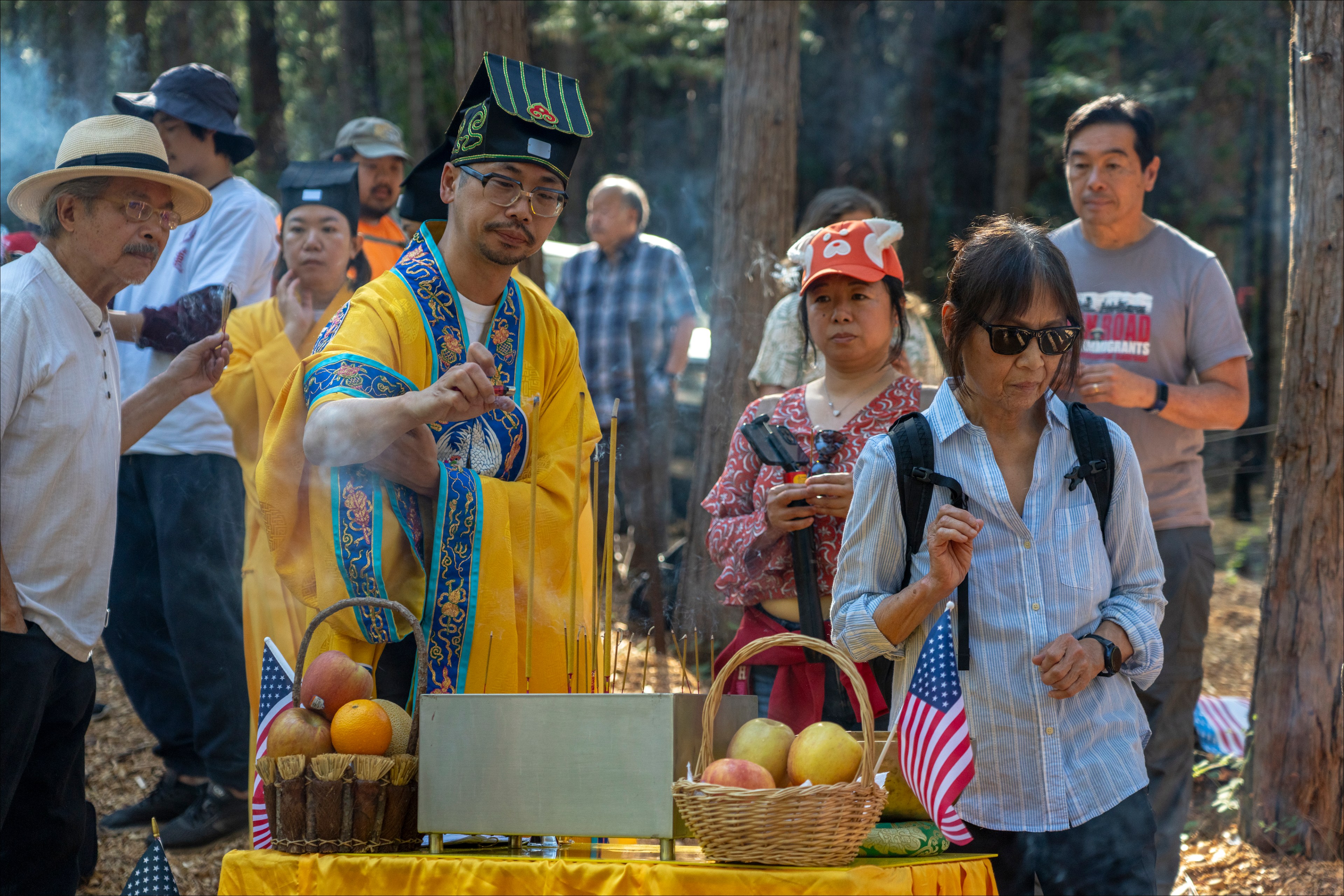A small town in Northern California will soon reclaim its forgotten Chinese immigrant history.
Dutch Flat, an unincorporated rural hamlet along Interstate 80 about 60 miles northeast of Sacramento, was once home to thousands of Chinese immigrants during the Gold Rush era. These days, however, the total population has fallen to only 183—and the local Chinatown and Chinese community have long vanished.
But underground, a piece of Chinese history remains.
Since 2022, a group of activists from San Francisco’s Chinatown who are passionate about preserving Chinese American history has been working with Dutch Flat historians to restore an abandoned 19th century Chinese cemetery, which is now a vacant plot with no visible gravestones.
“There has been great interest in saving the cemetery,” said David Lei, a leader of the project. “Both the Dutch Flat community and Bay Area Chinese community are working together to make that happen.”
A Rural Chinatown
In the 1850s, many Chinese immigrants settled in Dutch Flat, and the local Chinese population was called “one of the largest” outside of San Francisco. Chinese immigrants worked in restaurants, laundromats, mining, lumber mills and railroad construction—as well as in brothels and gambling dens.
Records show Dutch Flat had 3,500 Chinese residents in 1853, over half its population. A Main Street plaque states “Chinese inhabitants numbered about 2,000” in 1860. Chinese New Year and Ghost Festival—a time of year when restless souls are believed to walk the earth, according to Chinese lore—were major cultural events at the time.
However, as in many other Gold Rush towns, racism against Chinese people grew, resulting in Dutch Flat’s first Chinatown getting burned down in 1877. Even as Chinese residents built a second one, they slowly moved away, and when the last Chinese resident in Dutch Flat died in 1933, it presaged the erasure of the town’s Chinese history.
Surprising Findings
Almost a century on, not far from town, the former Chinese burial grounds lie untouched in a hilly pine forest. Families with means often disinterred bodies and sent them back to China, but not every family could afford it, so some of them stayed.
Local husband-and-wife historians Tom and Sarah Fugate have long been aware of the lost Chinese cemetery and thought these Gold Rush pioneers’ stories deserved proper remembrance.
“The Chinese cemetery has been totally ignored,” Tom said. “I thought it was disrespectful.”
Sarah, the president of the Golden Drift Historical Society, a Dutch Flat museum with Chinese history documentation, started to contact Bay Area activists in 2019, sparking a movement to save the cemetery. They also coordinated with local governments and technology firms to conduct ground-penetrating radar checks—which, surprisingly, found over 300 graves.
The conditions of any coffins, caskets or remains are unclear, as these findings are preliminary. However, the Fugates said the area was considered the “Chinese section” of Dutch Flat, so they’re confident that the bodies are those of Chinese Americans.
Lei also said they may seek permission to dig up some of the graves to verify identities.
On July 4, 2022, and again on July 4, 2023, a group of Bay Area Chinese Americans visited the cemetery, including volunteers from the Chinese American Pioneer Heritage Committee and Chinatown History & Culture Association.
Masters from the Lotus Taoism Institute, based in San Francisco’s Sunset District, also went to Dutch Flat to perform a traditional Taoist ritual to honor ancestors buried in the town.
Stepping Up With Money
This Sunday, a press conference will be held in San Francisco’s Chinatown to officially kick off the restoration effort. Through fundraising, the Chinese Consolidated Benevolent Association, the city’s most historic Chinatown association, has collected $20,000, and the Golden Drift Historical Society will chip in about $6,000.
“We hope to see our history rebuilt in Dutch Flat,” Ding Lee, a board member of the Chinese Consolidated Benevolent Association and longtime Chinatown leader, told The Standard.
According to the Fugates, the money will be spent on cleaning up the cemetery site, covering the radar technology fees and building the memorials, such as a plaque and burner for rituals. The Fugates will help oversee the project, as most Chinese American activists involved with the project are Bay Area-based.
Dutch Flat’s rediscovery of the Chinese cemetery is not a single incident. In San Francisco’s Richmond District, a former Chinese cemetery site, Kong Chow funerary monument 岡州旅厝, is now a city landmark, and the Chinese community will host ceremonies there every year. In Carlin, Nevada, local officials also established a new monument for the early Chinese immigrants buried there.
Lee attended the rituals this year on July 4 and said he would organize more people to visit Dutch Flat.
“We will continue to go back to Dutch Flat to honor our Chinese ancestors,” Lee said. “We have the responsibility to remember it.”
